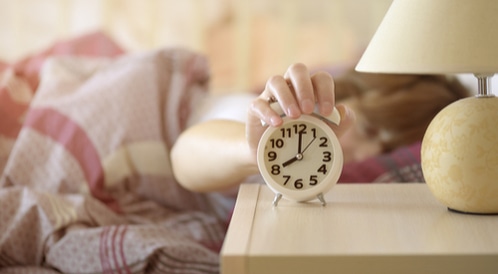
Discover the Link Between Oversleeping and Mental Health
- May 7th 25
In this article, we’ll guide you through the world of psychological sleep, exploring its causes, symptoms, and how to manage it effectively to protect both mental and physical health.
What is Oversleeping?
Oversleeping is defined as sleeping more than 9 hours a day regularly, accompanied by fatigue or exhaustion after waking up, without feeling refreshed mentally or physically. While sleeping longer might seem beneficial, it’s often a warning sign of an underlying physical or psychological issue.
Is Oversleeping a Sign of Depression?
Yes, significantly. One of the most common symptoms of chronic depression is frequent oversleeping—either as a way to escape emotional pain or due to intense mental exhaustion. The person feels sleep is the only refuge from sadness, anxiety, or numbness.
Signs that your sleep might be psychological:
-
You sleep a lot but wake up exhausted.
-
You feel sad or anxious after waking.
-
You escape into sleep to avoid daily tasks.
-
You lack motivation to do regular activities.
Difference Between Restful Sleep and Psychological Sleep
| Restful Sleep | Psychological Sleep |
|---|---|
| Followed by energy | Followed by fatigue |
| Due to actual physical need | Due to stress or depression |
| Linked to healthy lifestyle | Linked to negative thoughts and avoidance |
| Occurs after effort | Happens without clear reason |
Psychological Causes of Oversleeping
There are several reasons why a person might sleep excessively without realizing it's tied to their mental health:
1. Chronic Anxiety
Constant worry about the future and fear of the unknown overload the brain, making the body seek rest through sleep.
2. Mild or Deep Depression
Depression doesn’t always manifest as crying or visible sadness. It often appears as isolation, fatigue, and oversleeping as a mental escape.
3. Past Psychological Trauma
Trauma, whether in childhood or adulthood, may create an unconscious link between sleep and a feeling of safety.
4. Low Self-Esteem
People with low confidence often find it hard to face daily life and may sleep more to detach from reality.
How to Deal With Psychological Sleep?
1. Track Your Sleep Pattern
Start by recording your sleep and wake times. Note how you feel afterward—refreshed or drained?
2. Ask Yourself the Right Questions:
-
Do I sleep because I’m physically tired or to escape?
-
Does my sleep increase after negative events?
-
Do I feel better after long sleep?
3. Exercise Regularly
Physical activity helps release serotonin, the “happiness hormone,” which reduces depression and improves sleep quality.
4. Speak to a Mental Health Professional
If oversleeping persists for more than two weeks without improvement, seek help from a doctor or psychologist.
5. Reduce Screen Time Before Bed
Blue light from screens affects sleep quality and disrupts your biological clock.
The Connection Between Mental and Physical Health
It’s important to understand that the mind and body are inseparable. Neglecting one affects the other. For instance, oversleeping caused by depression can lead to obesity, back pain, and even heart disease.
Similarly, chronic physical exhaustion can cause mental fatigue that leads to depression.
When Does Oversleeping Become Dangerous?
-
If it causes you to miss work or school.
-
If it affects your relationships.
-
If it's accompanied by sadness, loss of appetite, or lack of enjoyment.
-
If you sleep without purpose just to escape.
Conclusion
Oversleeping is not always a sign of rest. It can be a silent symptom of a mental health disorder. We encourage everyone to pay attention to changes in their sleep patterns and not ignore the signs your mind or body sends.
If you notice changes in your sleep, start investigating the real reason. Don’t delay caring for yourself—mental health is not a luxury; it’s a necessity for balanced living.




